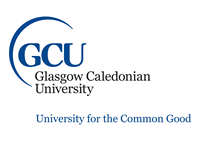Prof A Klemm, Dr P Baker, Dr D McCormick
Applications accepted all year round
Self-Funded PhD Students Only
About the Project
SCEBE-19-006
The Scottish House Condition Survey 2016 reported that 42% of the housing stock had un-insulated walls and approximately 25% of households suffer from fuel poverty. Schemes such as the Energy Company Obligation (ECO) aim to help reduce carbon emissions and tackle fuel poverty. Much of the post-war social housing stock is of cavity wall construction and ECO-funded application of external wall insulation (EWI) to this building type is common. However, the specification of EWI appears to ignore the deleterious effect that a wall cavity may have on thermal performance due to ventilation. Recent research at GCU has shown that EWI applied to cavity wall dwellings cannot achieve the predicted CO2 reductions. There is also evidence that the application of such high vapour resistant insulation materials may exacerbate dampness problems.
The aim of the research will be to develop insulation upgrade solutions for the post-war housing stock which deliver verifiable energy savings and also reduce the risk of moisture problems in the housing stock.
The main objectives of the project can be grouped in 3 interrelated Work Packages:
WP1 ● Laboratory based assessment of the hygrothermal performance of selected insulation systems on typical post-war wall constructions.
WP2 ● Development of hygrothermal modelling of the constructions in WP1.
WP3 ● Real-world performance of selected solutions by in situ monitoring and subsequent model validation.
Specifications
The project is particularly suited to students from a building physics or civil engineering background with good experimental and modelling skills, however applications are also welcome from students from related disciplines such as architecture. The successful candidate will need to demonstrate a good understanding the technical aspects of the problem, any prior experience in hygrothermal modelling would be an advantage.
Research Strategy and Research Profile
Glasgow Caledonian University’s research is framed around the United Nations Sustainable Development Goals, We address the Goals via three societal challenge areas of Inclusive Societies, Healthy Lives and Sustainable Environments. For more. This project is part of the research activity of the Research Group – Sustainable Materials and Structures url.
Project reference number: SCEBE-19-006
How to Apply
Applicants will normally hold a UK honours degree 2:1 (or equivalent); or a Masters degree in a subject relevant to the research project. Equivalent professional qualifications and any appropriate research experience may be considered. A minimum English language level of IELTS score of 6.5 (or equivalent) with no element below 6.0 is required. Some research disciplines may require higher levels.
Candidates are encouraged to contact the research supervisors for the project before applying. Applicants should complete the online GCU Research Application Form, stating the Project Title and Reference Number (listed above).
Please also attach to the online application, copies of academic qualifications (including IELTS if required), 2 references and any other relevant documentation.
Please send any enquiries regarding your application to: [Email Address Removed] Applicants shortlisted for the PhD project will be contacted for an interview.
For more information on How to apply and the online application form please go to
https://www.gcu.ac.uk/research/postgraduateresearchstudy/applicationprocess/
Professor Agnieszka Klemm [Email Address Removed]
https://www.gcu.ac.uk/cebe/staff/agnieszka%20klemm/

 Continue with Facebook
Continue with Facebook

